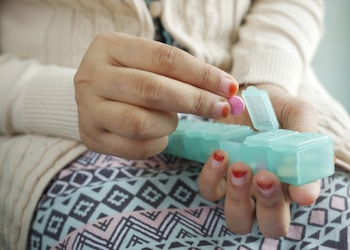Rehab is one of those things that a lot of people are curious about, but not many people know much about. What exactly happens when you check into a treatment center? What can you expect? How long will it take before you feel better?
These are all valid questions, and this blog post will aim to answer them all. Please keep reading to learn more about rehab and what to expect when you go through it.
What Are Rehab Centers?
Rehab centers are places where people with addiction problems can get help. These centers typically offer various drug or alcohol addiction services, including detoxification, counseling, and education. Rehab centers can be either inpatient or outpatient, and they may also offer residential treatment.
Inpatient treatment rehab centers require patients to stay at the center for some time, while outpatient centers allow patients to come and go as they please. Residential rehab centers provide housing for patients during their treatment.
Rehab centers typically have a staff of doctors, counselors, and therapists who work with patients to help them overcome their addictions. Many rehab centers also offer aftercare programs to help patients stay on track after they leave the center.
Different Types Of Rehab Centers
There are a lot of rehab centers, each with its philosophy and approach to addiction treatment. Some of the most common types of rehab centers include:
- Inpatient Rehab Centers
- Outpatient Rehab Centers
- Residential Rehab Centers
- Dual Diagnosis Rehab Centers
- Drug and Alcohol Rehab Centers
What Happens When You Check Into A Rehab Center?
Checking into a rehab center can be a daunting experience, but it is vital to keep in mind that you are not alone. Many people have been through the same thing and come out on the other side. These are a few things you will do once you check-in:
Brief Tour of Rehab center
Once you check in, the staff will give you a brief tour of the rehab facility. This will help you to get familiar with the center and the staff. It is also a good time to ask any questions you may have.
Orientation
After the tour, you will be given an orientation. This is where you will learn about the rules and regulations of the rehab center.
Detox
The most important step in checking into a rehab center is to detox. This is where you will be rid of all the drugs and alcohol in your system. It is essential to remember that this is only the first step in your recovery and that there is still a long path to tread.
Assessment
The second most important thing (after detox) that will happen when you check into a rehab center is that a team of professionals will assess you. This team will include a doctor, a nurse, and a counselor, all certified by the mental health services administration. They will ask about your drug use, medical history, and mental health. This assessment will help them determine what level of care they need and what treatment options are available.
Scheduling and Room Assigning
Once you have been assessed, you will be assigned to a room in the rehab center. You will be given a schedule of daily activities, including group therapy, individual counseling, and recreational activities. You will also be given time to rest and relax.
Therapy
After that, you will then start therapy. This is where you will begin to learn about your addiction and how to deal with it. You will also learn about yourself and why you turned to drugs or alcohol in the first place.
What Can You Expect During Your Stay There?
Drug or alcohol rehab centers provide a variety of services and activities to help people recovering from addiction. You can expect to participate in group and individual therapy sessions and educational classes during your stay.
You will also attend 12-step meetings and other activities to promote sobriety. The staff at rehab centers are dedicated to helping you recover, and they will create a personalized treatment plan based on your needs. In addition, they will provide you with the necessary resources and tools to maintain your sobriety after you leave the rehab center.
By participating in all of these activities, you will set yourself up for success in recovery.
What Type Of Treatments Are Offered At Rehab Centers?
American Addiction Centers offer a variety of treatments to help patients overcome their addictions. Some of the most common types of treatments include:
Medical detoxification
The first step in most rehab programs is medical detoxification, ridding the body of drugs and alcohol. This can be a difficult and uncomfortable process, as it can cause withdrawal symptoms such as nausea, vomiting, and shaking. Medical detoxification is typically done under the care of a doctor or nurse, who will provide medication to help ease withdrawal symptoms.
Therapeutic treatments
After medical detoxification, patients will begin to participate in treatments. These treatments are designed to help patients understand their addiction and learn how to cope with triggers and cravings. Common treatments include individual therapy, group therapy, and family therapy.
Holistic therapies
In addition to traditional therapies, many rehab centers also offer holistic therapies. These therapies treat the whole person rather than just the addiction. Common holistic therapies include yoga, meditation, and acupuncture.
Aftercare planning
When patients are discharged from rehab, they will typically be given an aftercare plan. This plan will outline what steps they need to take to stay sober after leaving treatment. Aftercare plans may include attending support groups or meeting with a therapist regularly.
How Long Does Rehab Take?
The length of your stay in rehab depends on several factors, such as the severity of your addiction, your financial situation, and whether you have any co-occurring mental health disorders. Most inpatient rehab programs last 30 days, but some can last 60 days or more. Outpatient programs typically last between 12 and 16 weeks.
Set Yourself Up For Success In Recovery
Rehab centers provide a supportive and safe environment for people recovering from addiction. During your stay, you can expect to participate in activities such as group and individual therapy, educational classes, 12-step meetings, and inpatient or outpatient treatment. Most rehab programs also include medical detoxification and aftercare planning. By participating in all of these activities, you will set yourself up for success in recovery from drug and substance abuse.
















